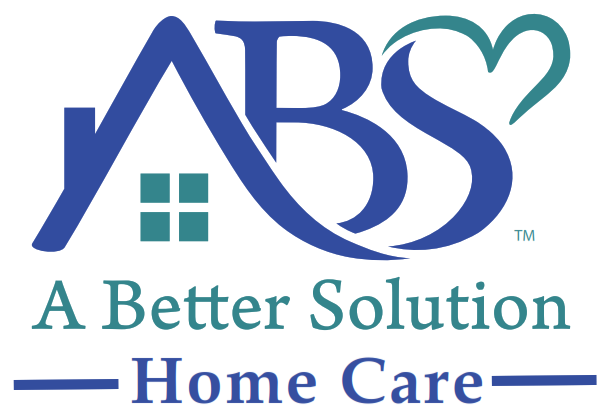
When ADL Support Isn’t Enough: Knowing When It’s Time for Professional Care
Abs
06-02-2025
Many families begin caregiving by helping their aging loved ones with activities of daily living like bathing, dressing, or preparing meals. These small, consistent acts of support can help seniors remain at home longer. But how do you know when that help is no longer enough, when it’s time to consider more comprehensive care?
Recognizing the tipping point between simple ADL assistance and professional support is essential to ensuring safety, dignity, and overall well-being.
Understanding Support for Activities of Daily Living: The Starting Point
Activities of daily living are the core tasks every person needs to manage independently to maintain their well-being. These include bathing, dressing, grooming, eating, toileting, walking, and transferring from a bed or chair. For aging adults, completing these tasks may require help due to physical or cognitive decline.
In-home caregivers, whether family members or professionals, often begin by assisting with a few of these tasks. This can include:
- Helping with hygiene and grooming routines
- Preparing meals and assisting with feeding
- Assisting with getting dressed
- Providing reminders for medications or hydration
- Helping with basic mobility (getting out of bed, walking, etc.)
For many seniors, support with activities of daily living helps maintain a sense of control and allows them to remain safely in their homes. It’s a vital layer of care that promotes dignity and independence, but it’s not a one-size-fits-all solution.
When Support with Activities of Daily Living Is No Longer Enough
Support with activities of daily living addresses physical and functional challenges, but what happens when deeper or more complex issues arise?
Cognitive Decline Makes Daily Tasks Unpredictable
As dementia or Alzheimer’s disease progresses, familiar routines can become confusing or even dangerous. A person might forget how to use the stove safely, wander outside and become lost, or resist help with hygiene due to confusion or fear. ADL support alone isn't equipped to handle the unpredictability of cognitive decline.
Physical Health Becomes More Complex
Older adults with chronic illnesses, such as Parkinson’s, heart disease, or diabetes, may need more than help getting dressed. They may require mobility devices, wound care, oxygen support, or frequent health monitoring. In these cases, care needs go beyond routine tasks and require more specialized knowledge.
Medication Management Becomes Risky
Missing a single dose of certain medications can lead to a fall, hospitalization, or serious health event. If your loved one has multiple prescriptions or needs medications administered at specific times, relying solely on reminders or family oversight may no longer be safe.
Emotional and Physical Burnout in Family Caregivers
Caring for a loved one around the clock can be emotionally and physically exhausting. Family caregivers often experience sleep disruption, social isolation, and health issues of their own. When caregiving begins to impact your ability to function or care for yourself, it's a sign that more help is needed.
Red Flags That Activities of Daily Living Support May No Longer Be Enough
It’s not always obvious when care needs shift from light assistance to requiring professional intervention. Below are key warning signs, each a possible indicator that your loved one may need more than help with activities of daily living.
Frequent Falls or Injuries
If your loved one has experienced repeated falls, even with mobility aids or supervision, it’s a sign that their physical safety is at risk. Falls can lead to fractures, hospitalizations, and long-term complications. ADL support alone may not include the fall-prevention strategies or home modifications that a trained professional can provide.
Wandering or Unsafe Behavior
Cognitive conditions like Alzheimer’s or dementia can cause disorientation, leading to wandering, confusion with appliances, or entering unsafe areas (e.g., kitchens or bathrooms unsupervised). This behavior often requires structured supervision or a secure environment, beyond what basic home care services for daily tasks can offer.
Missed Medications or Dosage Errors
If pills are piling up in a dispenser or your loved one is taking the wrong medication at the wrong time, the risks are serious. Complex medication regimens can’t be reliably managed with reminders alone, and family caregivers may not be equipped to supervise consistently.
Neglect of Personal Hygiene or Toileting
Unexplained body odor, soiled clothing, or unwashed hair could be signs that your loved one is avoiding bathing or struggling with incontinence. They may be embarrassed or physically unable to manage personal care tasks. This often leads to infection, skin issues, and reduced self-esteem.
Emotional Distress or Withdrawal
Increased agitation, mood swings, or isolation can indicate depression, cognitive decline, or a deep sense of frustration with daily challenges. Emotional distress often goes unnoticed in day-to-day caregiving but may be a sign that more structured support is needed to protect mental well-being.
Caregiver Burnout
If you feel exhausted, overwhelmed, or resentful, you’re not alone. Many family caregivers sacrifice their own health and careers while trying to keep a loved one safe. Burnout not only affects you but also compromises the care your loved one receives. If you’ve reached a breaking point, it’s time to explore alternatives.
Exploring Professional Care Options Beyond Daily Assistance
Once activities of daily living support are no longer enough, the next step often involves professional services tailored to evolving health needs. Each care type offers different levels of assistance, structure, and medical oversight. Understanding your options can make the decision less overwhelming.
Advanced In-Home Care Services
Ideal for seniors who wish to remain at home but require more comprehensive support, advanced in-home care provides professionally trained caregivers who can manage both physical and cognitive needs. This goes beyond help with dressing or bathing. It may include dementia care, managing chronic conditions like diabetes or Parkinson’s, and ensuring safety through proper transfer techniques and fall prevention. Care can be customized from a few hours a day to 24/7 supervision.
Assisted Living Facilities
Assisted living offers a balance between independence and support. Seniors have private or semi-private living spaces but benefit from on-site staff available 24/7 to help with medications, meals, bathing, and more. These communities also provide social activities, wellness programs, and housekeeping. It’s a good fit when your loved one is still somewhat independent but needs daily monitoring or struggles with isolation at home. Families often compare assisted living vs home care when considering whether staying at home is still safe.
Memory Care Communities
Memory care facilities are specifically designed for individuals with Alzheimer’s or other forms of dementia. These secure environments are equipped with staff trained in cognitive disorders, daily memory-enhancing routines, and calming therapies that reduce agitation or confusion. Structured schedules, low staff-to-resident ratios, and safety features like enclosed courtyards make them ideal for seniors prone to wandering or who need consistent behavioral support.
Personal Care Homes
Smaller and more intimate than traditional assisted living, personal care homes may be family-operated or boutique-style facilities housing only a handful of residents. They offer help with meals, hygiene, and medication but in a quieter, home-like setting. They are a good fit for seniors who need moderate help but prefer less stimulation than large communities provide. Comparing a personal care home vs assisted living can help determine which environment your loved one will thrive in.
Respite Care for Family Relief
Respite care offers temporary professional support, either in the home or at a facility, to give family caregivers a much-needed break. Whether it's for a vacation, medical leave, or simply to recharge, respite care ensures your loved one remains safe and supported while you step away. It can also be a helpful trial period to explore long-term care options without immediate commitment.
How A Better Solution Home Care Can Help Families Transition to the Right Care
At A Better Solution Home Care, we understand how difficult it can be to decide when help with activities of daily living isn’t enough. That’s why our services are designed to grow with your needs.
Personalized Assessments for Changing Needs
Our process starts with a thorough evaluation of your loved one’s current challenges, routines, medical needs, and personal preferences. We consider both the client and caregiver’s perspective to recommend the most effective level of care.
Professional Caregivers Trained for Complex Situations
Our caregivers are equipped to manage far more than just ADLs. They receive proper training in dementia care, fall prevention, safe transfer techniques, chronic condition support, and more, ensuring your loved one receives expert, compassionate care.
Flexible and Scalable Care Plans
Whether your loved one needs just a few hours a week or 24-hour live-in support, our services are designed to adapt as circumstances change. We offer:
- Hourly in-home care
- Full-time caregiving
- Respite support
- Personalized support for Dementia, Alzheimer’s and Parkinson’s
Transparent Communication and Ongoing Support
We work closely with families to ensure they are involved, informed, and confident in the care being provided. Adjustments can be made at any time as needs evolve.
Real-Life Example: When Familiar Support Is No Longer Enough
A well-known example of this kind of transition is President Ronald Reagan, who lived with Alzheimer’s disease for over a decade. In the early years after his diagnosis in 1994, Reagan received help with basic activities of daily living like reminders for appointments, managing medications, and staying oriented throughout the day. At this stage, he still maintained some independence with light support at home.
However, as his condition progressed, so did the level of care he needed. Memory loss, disorientation, and changes in behavior became more pronounced. Eventually, even tasks like dressing, bathing, and eating required hands-on assistance. His wife, Nancy Reagan, became his primary caregiver, but over time, the emotional and physical strain took its toll.
Recognizing the shift, the Reagan family turned to professional care options better equipped to handle advanced cognitive decline. With trained professionals providing 24/7 supervision and structured dementia care, Reagan could remain safe and as comfortable as possible, while his family received the support they needed to navigate the difficult journey.
His story reflects what many families experience: a gradual but undeniable realization that support with daily activities is no longer enough, and transitioning to professional care is not giving up. It’s adapting to reality with love and responsibility.
The Loving Choice: Knowing When to Take the Next Step
Choosing professional care isn’t giving up, it’s stepping up. When activities of daily living support is no longer sufficient, seeking the right level of help is an act of love. It ensures your loved one remains safe, respected, and well cared for, and allows you to breathe, rest, and reconnect with your own life.
Not sure if your loved one’s needs have outgrown basic ADL support?
Contact A Better Solution Home Care today for a free, personalized assessment. We’re here to guide you every step of the way
